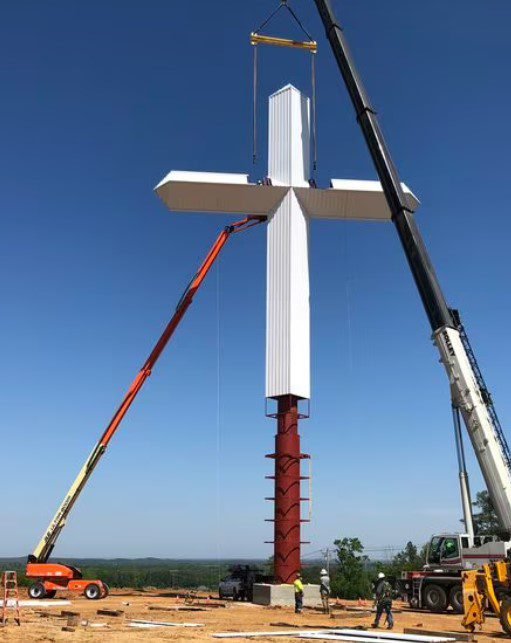
How we spend our money says a lot about our values and what we consider important. As an Evangelical pastor, I took seriously the teachings of the Bible concerning money (mammon) and material possessions. Today, many preachers and churches put money before ministry; material possessions before ministering to the least of these. In Matthew 25, Jesus talked about the importance of helping the least of these; that doing so was a sign of true faith. Who are the least of these? People who are hungry, sick, thirsty, poor, widowed, orphaned, and in prison. Further, the Bible discusses ministering to strangers and foreigners (immigrants). Yet, it seems most churches and pastors either can’t find these verses in their Bibles or they KNOW what the Word of the Lord says but try to either reinterpret these verses or explain them away. What we end up with, then, are churches loaded with cash that are focused on making fat sheep fatter, showing no love, compassion, or regard for the strangers at their gates.
Oh, these churches and their pastors will object, saying, We LOVE people! We love them so much that we share the gospel with them. Instead of seeing people as they are, churches see them as sinners, broken, and in need of fixing. People are never seen as . . . people. Instead, they are viewed as targets of evangelization; prospective church members; and future tithers. With Evangelical churches, in particular, I have concluded that it is almost impossible for them to interact with the unwashed, uncircumcised Philistines of the world without having ulterior motives.
Recently, a commenter on Another Evangelical Con Job, This Time by 7 Hills Church in Cincinnati, Ohio, had this to say:
As a member of 7 Hills, I find this quite concerning that you are judging the actions of the church without coming to a service, speaking directly to a staff member or researching outside of one article. The church gives MILLIONS to the community all the ways you listed and also provides to several prison ministries and the men/women incarcerated there. We provide a mobile Women’s health bus that goes into the community to share the answer of life to those that are questioning decisions that could lead otherwise. I would challenge you to call the church and ask the questions you may have toward the ministries.
The article in question was about a megachurch’s annual egg drop for children. I wrote:
7 Hills Church, a congregation with locations in Florence, Kentucky, and Cincinnati, Ohio, provides a good illustration of what I am talking about in this post. 7 Hills Church held multiple egg drops after services on Good Friday, Holy (huh?) Saturday, and Easter Sunday. 200,000 eggs were dropped for 3,000 children to put in their baskets and bags. According to Kyle Waid, an associate pastor at 7 Hills Church, “Every year, 7 Hills Church tries to make fun Easter memories for families. Over the years, we’ve dropped eggs out of hot air balloons, had professional skydivers, fireworks, and even shot people out of cannons.”
Waid knows Easter egg hunts are thoroughly, completely, and absolutely secular, yet justifies having one:
“[Paul said] To the weak I became weak, to win the weak. I have become all things to all people so that by all possible means I might save some. Our church carries that same mission. We have become all things to all people with the same goal as Paul: that someone would receive the message of Jesus. The egg hunt is an afterthought. The goal is to reach people.”
The goal, Waid stated, is to “reach [save, evangelize] people.” Not just doing something nice and fun for local children. The goal is what the goal always is for Evangelicals: saving sinners, adding members to the church, and increasing offerings.
Much like Evangelical rescue missions who require homeless people to sit through a sermon and an altar call before getting a meal or a bed for the night, 7 Hills Church required children and their families to attend church before the Easter egg drop.
“Following every Easter service, we hand out admission tickets to the egg hunt. It’s our hope that through the 10 minutes of hunting eggs, families can create a fun memory together. It’s our prayer that through the hour and 15-minute service, moms, dads, aunts, uncles, grandparents, sisters, and brothers can find a forever friend in Jesus.”
According to Waid, almost five hundred people were “saved” during the Easter weekend churches. Waid added that 7 Hills pastor Marcus Mecum “has always invested heavily in the next generation, including making church for children fun and engaging.” Dropping plastic Easter eggs from the sky, a stunt that cost thousands of dollars, is “investing heavily in the next generation’? Really? Fun? Sure. But, I would love to know how much money 7 Hills has invested in the local community with no strings attached. My bet is on “not much.” How much money was spent on people outside of the church, on paying rent, utilities, car repairs, and providing food to the least of these? Again, based on their multi-million-dollar budget, I’d say “not much.
As you can see, the goal was to evangelize the lost. Participants were required to attend church before getting a ticket granting them admission to the egg drop. According to the church, this is one of the ways they invest heavily in the next generation. Really? I mean really? Does anyone think that dropping plastic eggs made in China from the sky has anything to do with investing in anything other than a slick publicity stunt meant to evangelize people and incorporate them into the church?
The commenter above protests, saying that 7 Hills does all sorts of things for the local community. What, exactly? I have challenged numerous Evangelicals over the years who object to my sharp criticism of their churches or pastors, saying that, as the commenter does, “our church gives MILLIONS to the community.” Really? Let’s see your budget. Not the annual summary budget churches often use to hide exactly how much money was taken in and how it was spent. Yes, I know all the tricks of the trade; how easy it is to hide certain expenditures behind generic line item entries in a superficial, misleading one-page summary budget.
I have been asking Evangelical churches and pastors for their budgets for almost twenty years. Not one church has coughed up a detailed budget. Why is that? I submit that they know doing so will show that the emperor has no clothes; that most church income is spent on buildings, utilities, staff, benefits, and felt-need programs meant to fatten up fat sheep. Very little is spent on helping the least of these; on ministering to those who can offer nothing in return or will never become asses in the seats.
The commenter said 7 Hills spends millions of dollars on helping people. I would love to see evidence for this claim. And, even if it is true, millions of dollars out of how much? Let’s say a church takes in $10 million a year. Over ten years, that’s $100 million. A proud-as-a-peacock member might say, “The church spent $5 million on helping people.” Significant to be sure, but compared to the $100 million pool, the church spent five percent of its income helping others. Where did the rest of the money go?
I will gladly eat my words if a church proves me wrong, but so far, no church has shown that its prime directive is to spend most of its money on those outside the gates. Churches are certainly free to spend their money as they wish, but if they attempt to pass themselves off as sacrificial benevolent organizations, I am going to ask them to show me the money. Evangelical pastors are notorious for lying about their churches’ income and expenditures. Shit, it is almost impossible to find out how much they are actually paid in salary and benefits or how much they make on side gigs like speaking fees and book royalties. Many Evangelical megachurch pastors, in particular, are multimillionaires, all the while encouraging people to walk in the footsteps of Jesus.
Bruce Gerencser, 66, lives in rural Northwest Ohio with his wife of 45 years. He and his wife have six grown children and thirteen grandchildren. Bruce pastored Evangelical churches for twenty-five years in Ohio, Texas, and Michigan. Bruce left the ministry in 2005, and in 2008 he left Christianity. Bruce is now a humanist and an atheist.
Connect with me on social media:
Your comments are welcome and appreciated. All first-time comments are moderated. Please read the commenting rules before commenting.
You can email Bruce via the Contact Form.



